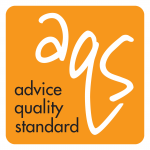An interview with one of our volunteers – Jacqui Walker
Looking back on your life’s journey, your accomplishments and challenges – what advice would you give to yourself?
If I would presume to give advice to the younger generation, the first thing I would say is ‘Keep going’. Sometimes it would be easy to give up. Especially in those times when things don’t go well, or racism has you exhausted and with little or no self-belief. Set your goals, make sure they are realistic and attainable. It’s no good saying you want to become a neurosurgeon if you have no aptitude for study and your hand shakes. If your goals are realistic, go for it and keep going till you get there. Look out for opportunities in life generally. Don’t dismiss your allies if they come in a form you did not expect. Not every woman is your competition in life and career. Strong female friendships can go a long way in supporting your journey in life. Form networks, become a mentor and mentee. You have a lot to teach others. If you’re an introvert like me, you can still be successful. Just find what your strengths are and use them. Being an introvert has given me a lot of time to read and study which I do when I’m taking time out. It has never stopped me from giving talks and lectures so don’t let your personality stop you from doing things you know you’re good at. You are enough and you matter, so don’t believe the trope of the angry black woman. If you are angry about something, it’s usually justified. We are the last to be chosen in dating apps, the last to get acting jobs, promotions, we suffer more micro aggressions than our white sisters or light brown sisters. So, yes, we do have something to get angry about. If you get angry, use that to fire your drive and determination, don’t let it become a destructive force in your life. Take time out when you need to, but never give up.
Last year’s Black History Month theme was ‘Celebrating out Sisters’ – if you were to pick the most inspiring woman in your life – who would it be and why?
It would be difficult for me to choose just one woman that has inspired me. I would probably have to choose someone local. Someone that has worked quietly and tirelessly to improve the lives of others. Sybil Phoenix is someone that I met as a child. She has had tragedy in her life but has chosen to dedicate her life to children and our community.
https://en.wikipedia.org/wiki/Sybil_Phoenix
What does Black History Month mean to you?
Black history month doesn’t mean much to me. While I like the idea of celebrating black history, I am concerned that black people are seen as separate from British history.
I would rather black history was taught in schools as something positive. This would include the positive contributions black people have made to our society for centuries. When I was in school and later, as a school teacher I was given access to pages in history books on the African slave trade with Europe. While this is fact, it is harmful to only see black people being treated as less than human. It damages self-esteem to see the only black people in history books as voiceless victims. If children were taught about black inventors and freedom fighters it would mean a lot more to me and others. It would also go a long way to improving pride and race relations.
What would you consider to have been the biggest challenge in your life?
I have had many challenges in my life. For example, my family has seen the effect of migration on the family dynamics. My older siblings were left behind temporarily when my parents came to England. My younger siblings were born here and never knew what it was to be separated from immediate family. This has caused a split that not many people talk about until recently with talk about the ‘barrel children’. There are other problems in my family due to divorce, low income and everything that racism has thrown at us.
Another challenge that surprises people when I speak about it is my immigration status. I arrived in England on a British passport with all the protection promised by the crown and empire. I always thought of myself as being British until the mid-1980’s when I applied for a passport and a background check to work with children. I was told I was not British and my younger child had no right to British citizenship. So, I was no longer British, and my eldest child had the right to stay but my youngest with the same mother and father born in London had no nationality. The only way I could change our situation was to buy my citizenship. I had no money at the time, so I had to borrow money to pay for my citizenship. Since then, many people have been deported without a means to support themselves. Some have worked hard for many years in transport, Royal Mail, the National Health Service and other key jobs. Some have been ill and died consequently. I cannot imagine leaving my home and all my belongings and being treated like a criminal. It is a scandal that I find hard to explain to others. I still worry that my status will change without my knowledge, and I will lose everything. An American asked me why I lost my citizenship and the only answer I could give is because I’m black. This is not totally accurate, but this is how I feel. It hasn’t happened to people from other parts of the world and most people in the Caribbean are of African descent. The compensation scheme set up by the government to pay us back for trauma and loss is a legal minefield. It is bound by so much red tape that hardly anyone has been compensated. I was told I had to wait until my mother claimed before I could claim on my own behalf. There are many rules that we can’t seem to get around and the only people receiving a pay out so far have been people outside the African diaspora. It doesn’t make sense to me or others. When I tried to explain to my peers at college, they asked me what nationality I was before. How could I be born British and had to buy my citizenship back? I now dread being asked about my nationality on official forms. Recently, I was asked ‘What nationality I was when I was born?’ This was when I applied for a background check to volunteer with Mind. It made me panic and I don’t know if that feeling will ever go away.
My other challenges have included my struggles with the education system. I have had to fight to get the education I want. From being told I had no academic ability and should become an auxiliary nurse (Healthcare assistant), to fighting for my children to sit exams according to their ability and potential. We have had to deal with racist bullying from both teachers and pupils. I have been falsely accused of abuse by a racist pupil. Thankfully the other children were witnesses and I kept my job at the time. Space doesn’t allow me to say much more about education, but I now have a degree and am about to complete my Masters Degree. Ironically, I am more qualified than some of the teachers that told me I would never pass an English O Level, which is the equivalent of the upper level of GCSE. I passed with the second highest grade on the first sitting! The underachievement of black and dual heritage boys is certainly not due to lack of ability, but more to do with low expectations and racism.
My biggest challenge has been my mental health. I first suffered depression as a teenager and it has plagued me since then. It is like a large stalking cat ready to pounce at any moment. I never know when it will attack, or how bad the episode will be. Losing my only son to a short illness in his early thirties has been a shock and a devastating blow to my health and happiness. He was a friendly, caring, life of the party kind of person. He went from being a tall strong, healthy man to barely hanging on to life on various machines in intensive care. I am still struggling with the grief combined with depression. I have found myself visiting the local hospital’s Urgent Care to get help. It is hard to describe the pain of depression without sounding dramatic, but there have been times when I have feared for my life. I have come close to suicide many times. In those times of crises, my daughter, a strong black woman, has been there for me. She helps to pull me out of the mire that is depression. Without her, I would have given up and not fought back against depression.
What are you most proud of?
I am most proud of my achievements as a mother. We escaped a violent, abusive situation when they were still quite young. I raised them without any help from their father as a necessity. It wasn’t easy, but my children grew up to be kind, loving, law abiding citizens that worked hard. My daughter works for the government and is my carer because I also have a neurological condition that leaves me exhausted and in pain. I admire her tenacity and how she never tires of helping others, including as part of her job. I am proud of the way she takes time out for her self-care and knows when to say no. At the time of writing this, she is at a spa for a well-earned break from work. She has just finished a major project at work, which involved travel and lots of meetings. So, she has earned her time off.
Thanks to Jacqui for speaking to us.



